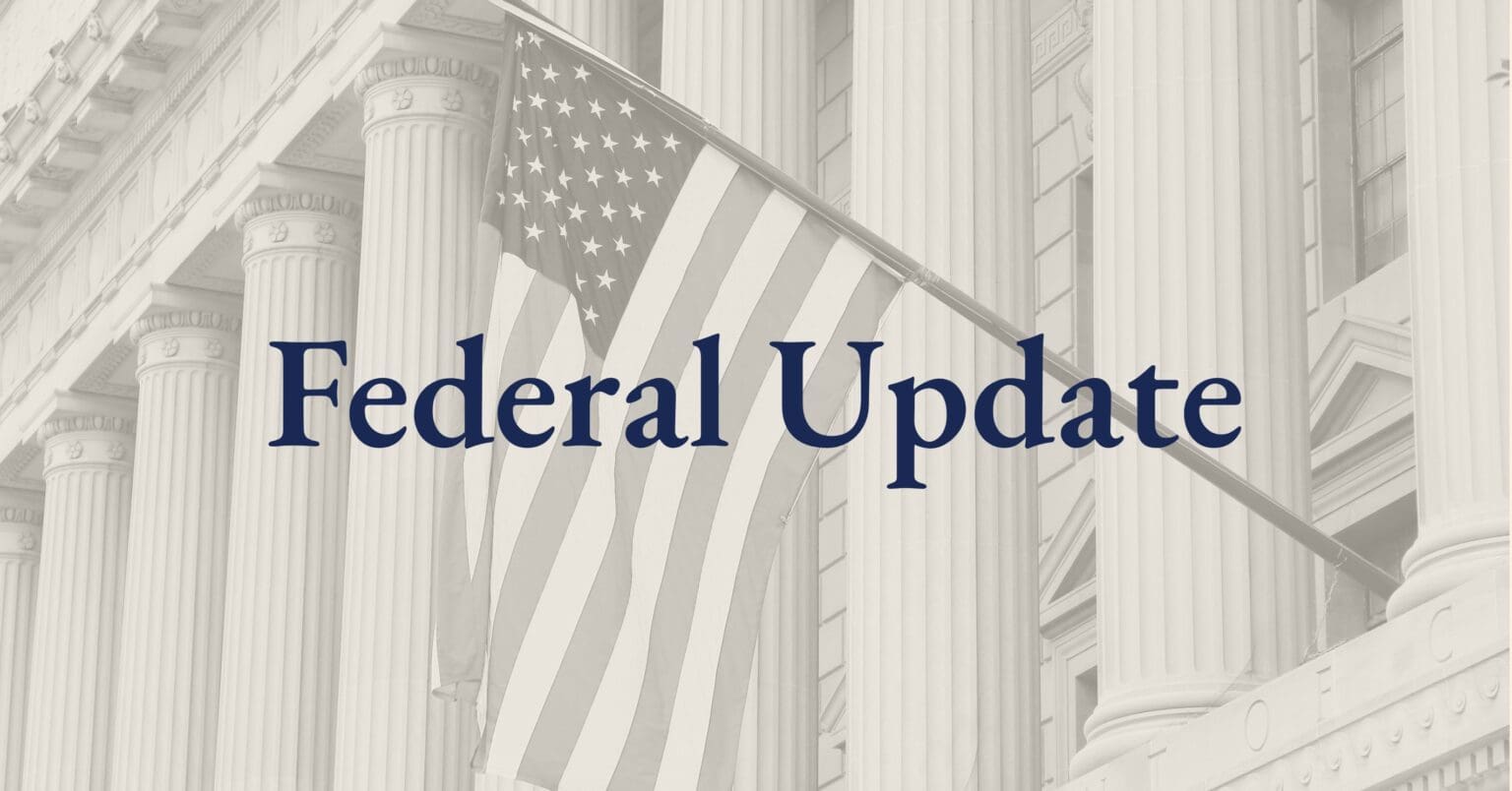Federal Update: Shutdown Talks Inch Forward
Back to News
With the federal shutdown now the longest in history, Congress is under renewed pressure to strike a deal to reopen the government as talks among a bipartisan group of senators are slowly inching forward.
In a notable development, Senate Republican leaders are moving away from the House-passed funding patch and preparing a new Continuing Resolution (CR) that would provide additional time to complete the fiscal year (FY) 2026 appropriations process. The shift reflects a growing consensus that the House’s proposed November 21 extension would not allow enough time to finalize the 12 annual spending bills.
While the length of a new stopgap measure remains under discussion, lawmakers are also considering ways to advance FY 2026 appropriations as part of a broader framework to reopen the government. Under an emerging plan, the CR would be paired with a three-bill spending package – or “minibus” – covering Agriculture, Military Construction-Veterans Affairs, and the Legislative Branch.
The package, which could reach the Senate floor as early as Friday, is expected to take several days to clear due to objections from both sides of the aisle. Also at the center of bipartisan negotiations is a potential vote or commitment on the expiring Affordable Care Act (ACA) premium subsidies. While the exact form that vote would take remains unclear, the issue has become a key sticking point in talks. With ACA open enrollment having begun last weekend, the expiring subsidies add urgency for lawmakers to reach a resolution.
Following this week’s state election results, which strengthened Democrats’ position at the negotiating table, Senate Minority Leader Chuck Schumer (D-NY) and House Minority Leader Hakeem Jeffries (D-NY) sent a letter to President Trump urging bipartisan talks to reopen the government. During a breakfast this week with Senate Republicans, the president reportedly attributed recent GOP electoral losses to the shutdown and renewed calls to change Senate rules to abolish the filibuster. For his part, Senate Majority Leader John Thune (R-SD) has reiterated that his conference lacks the vote for such a procedural move.
USDA Ordered to Release Full SNAP Benefits by November 7
In an emergency hearing this afternoon, a federal district judge in Rhode Island ordered the U.S. Department of Agriculture (USDA) to immediately use available emergency funds to provide full Supplemental Nutrition Assistance Program (SNAP) benefits for November, directing the agency to transfer funds to states by November 7. The Department of Justice has appealed this ruling and everyone is awaiting information on what this means for next steps.
The ruling follows USDA’s earlier plan to issue only partial benefits for the month using a complex formula that state officials warned would be administratively burdensome and could delay payments by days or even weeks. Under that proposal, some SNAP recipients were expected to see benefit reductions exceeding 50 percent, while an estimated 2.6 million individuals would have received no benefits at all.
While acknowledging that the Trump administration retains discretion to allocate other available funds for SNAP, the court found USDA’s refusal to do so “arbitrary and capricious” and inconsistent with a prior order requiring the Department to resolve administrative issues with partial payments “expeditiously.” The judge also cited a Tuesday social media post by President Trump threatening to withhold all SNAP funding until the shutdown ends as evidence of an intent to disregard the court’s directive.
Other Programs of Interest:
Special Supplemental Nutrition Program for Women, Infants and Children (WIC): USDA has transferred $450 million in emergency funding to sustain operations. While the duration of these funds is uncertain, program costs typically average $150 million per week (but vary by state).
Housing Programs: The Department of Housing and Urban Development (HUD) is extending funding for public housing operations and housing choice vouchers through December. This alert was sent by the Council of Large Public Housing Authorities.
Head Start: The National Head Start Association (NHSA) reports that as of November 3, 140 Head Start programs serving more than 65,000 children have not received the federal grant funds necessary to operate. Many are continuing services using local or philanthropic resources while awaiting federal funds. Federal funding for Head Start is dispersed on a staggered grant cycle, so different agencies receive their funding at different times throughout the year.